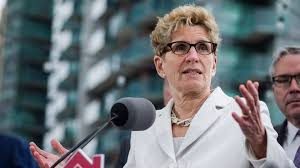 June 2017
June 2017
Rent Controls Lead to Better Condo Management
Building Ontario has introduced reforms that bring all tenants under the province’s existing rent control system. This has implications for condo owners, renters and management.
Rent controls have been extended to include all rental properties. All condo landlords are now required to follow the same rules as those that previously applied to pre-1991 rental properties. Conversely, all renters are now covered under the same regulations regardless of when a condo property was built. Other announced changes include a 15% “Non-Resident Speculation Tax” applied to purchasers of residential real estate by anyone not a citizen or permanent resident, if they are not living in Ontario.
Annual rent can be increased at the rate posted in the annual provincial rent increase guideline. The increase is capped at a maximum of 2.5%. While landlords can apply for above guideline increases, these tend to be tightly controlled. Increases in monthly condo fees are unlikely to be relevant when seeking an exemption from this limit.
Economists note that rent controls reduce the supply of rental accommodation. Developers argue that rent control is a disincentive to building residential accommodation. Federation of Rental Providers of Ontario (FRPO) has opposed removal of the 1991 exemption.
Ontario rent controls were first enacted in 1944 and have been in continuous use since 1976. Toronto’s stock of rental properties has continued to grow during this time. The extension of rent controls to post-1991 rental properties is unlikely to have a significant impact.
Rent controls may lead to better condo management
The introduction of rent controls to post-1991 residential rental properties is expected to have implications for condo owner-landlords, condo owner-residents and condo management.
The most likely impact of rent controls will be on the election and composition of condo boards
The most likely impact will be on the election and composition of condo boards. Condo owner-landlords, concerned with the return on their investment, may be less tolerant of inefficient or poor management that leads to higher condo fees. They may lobby for condo fee reductions while accepting any degradation in condo lifestyle and failure to maintain the infrastructure as a path to improved profitability of their rental properties. This could lead to the election of more investment-friendly condo boards intent on maintaining the condo property for investment purposes rather than as a residential property.
More condo corporations, particularly those with a significant number of owner-landlords, may offer rental management services through the Management Office for a fee. This releases condo owners from the burden of acting as a property manager. The Management Office is better able to keep track of what is going on in rental suites and ensure adequate oversight. Unreported problems can be identified more quickly. Tenant concerns can be addressed in a timely manner while ensuring owner interests are being represented. Periodic property inspections can be undertaken as warranted. Rental management services provided by a condo corporation could lead to improved condominium management while generating revenue for the corporation.
All condo owner-landlords are now subject to the Residential Tenancies Act. Responsible landlords will have to become familiar with this legislation to avoid being in contravention.
Condo prices may decline as speculators, who purchase condos with the intention of renting or reselling them, exit the market. Rent controls will make it harder for these speculators to charge sufficiently high rent to cover costs or to sell at a higher price. Loss of speculators from the marketplace could be beneficial to condo buildings concerned over the growing number of renters.
 Non-residents purchasing a condo including the non-resident tax could be paying an additional $100,000 or more. This may result in fewer purchasers and lower selling prices.
Non-residents purchasing a condo including the non-resident tax could be paying an additional $100,000 or more. This may result in fewer purchasers and lower selling prices.
Extension of rent controls is sure to change the dynamic within condo buildings. It remains for each condo board to decide if these changes are to result in a positive outcome.




